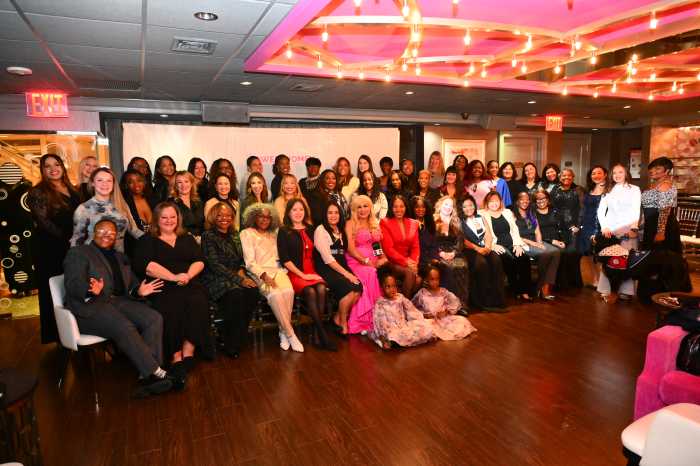By Patrick Donachie
Parents concerned about school safety and overcrowding in District 26 schools downed coffee, enjoyed breakfast and met with lawmakers at a Friday morning event at the Bayside Diner. The breakfast was organized by the district’s Presidents’ Council and attendees discussed the need for more crossing guards to direct traffic at school arrivals and dismissals.
During the breakfast, Alan Ong, president of Community Education Council 26, unveiled the results of an informal survey of District 26’s school principals about traffic around their schools. The CEC asked them about traffic incidents and infractions that occurred near their schools in the past year.
The most common complaints were incidents of double/triple parking, speeding, making illegal U-turns and ignoring stop signs, according to the survey. Principals from 13 schools also reported traffic accidents near their schools’ premises during arrival or dismissal in the previous year.
“Traffic issues have been like a broken record,” Ong said, bemoaning the frequency of complaints from frustrated parents.
The survey indicated that every school in the district except MS 172 had at least one crossing guard, though Ong said that one guard alone often did not suffice because of heavy traffic. He remarked that parents have requested more crossing guards, to no avail.
“We either hear that there’s no budget or people don’t want to do the job,” he said.
City Councilman Rory Lancman (D-Hillcrest) said it can be difficult for the city to find and keep people interested in working as crossing guards, as the hours are few and the pay is low. Crossing guard jobs pay $11.50 to start, according to the NYPD’s website.
Renee DiRe, co-PTA president at PS/IS 266, said there were no crossing guards assigned to her school. She had been told that since PS/IS 266 shares a campus with two other schools off of the nearby main roads, a crossing guard would be unnecessary.
“All you need is one person to double park, and boom, it’s a mess. The school buses can’t get by,” she said. “There are times when I wait for 20 minutes or more.”
Parents also expressed their continued annoyance about the overcrowding at Bayside schools. Council Co-president Cathy Grodsky said that 37 students at MS 172 had not matched into any of the area schools for which they applied (the school had 326 eighth-graders enrolled in 2014-2015, according to data from the Department of Education).
“If you’re that child with no match, what are you going to do?” she said, and called attention to the stress the process entails for children and parents. “A 14-year-old should not have that anxiety like they’re applying to medical school, and that’s what it’s become.”
Bobby Thind, a co-PTA president for the school, said while he understood that overcrowding was a district-wide reality, it nevertheless troubled parents whose children had not found a match in one of Bayside’s lauded high schools.
“I understand what they’re saying,” he said. “But what about the students that are not getting in?”
State Assemblyman David Weprin was also present at the breakfast and spoke about the proposed $2.13 billion increase in funding for education statewide from the previous year, with a total allocation of $25.4 billion in the lower house’s proposed 2016 budget. He said the increase was one of the largest he had seen in his time as a legislator.



































